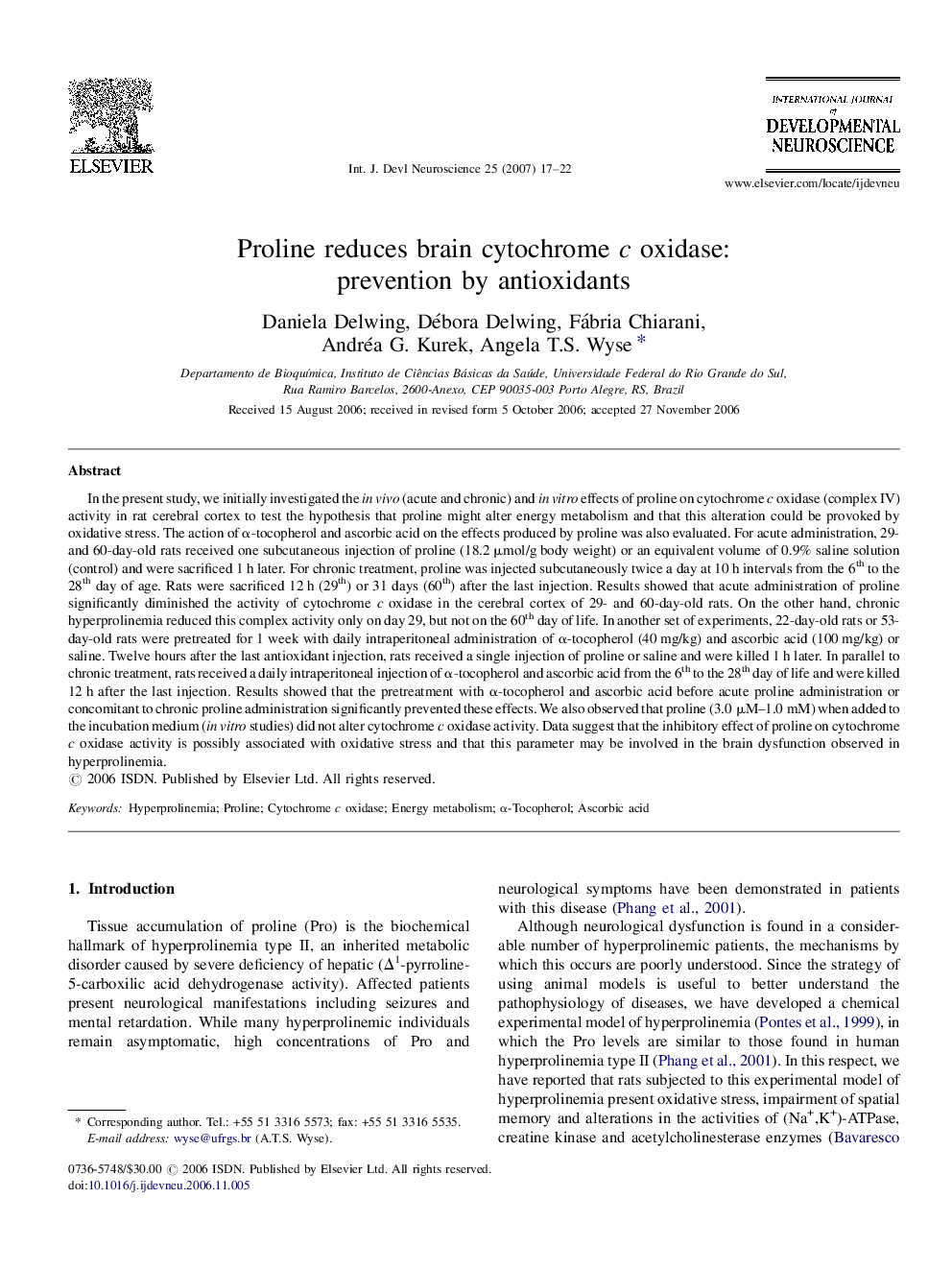| Article ID | Journal | Published Year | Pages | File Type |
|---|---|---|---|---|
| 2787186 | International Journal of Developmental Neuroscience | 2007 | 6 Pages |
Abstract
In the present study, we initially investigated the in vivo (acute and chronic) and in vitro effects of proline on cytochrome c oxidase (complex IV) activity in rat cerebral cortex to test the hypothesis that proline might alter energy metabolism and that this alteration could be provoked by oxidative stress. The action of α-tocopherol and ascorbic acid on the effects produced by proline was also evaluated. For acute administration, 29- and 60-day-old rats received one subcutaneous injection of proline (18.2 μmol/g body weight) or an equivalent volume of 0.9% saline solution (control) and were sacrificed 1 h later. For chronic treatment, proline was injected subcutaneously twice a day at 10 h intervals from the 6th to the 28th day of age. Rats were sacrificed 12 h (29th) or 31 days (60th) after the last injection. Results showed that acute administration of proline significantly diminished the activity of cytochrome c oxidase in the cerebral cortex of 29- and 60-day-old rats. On the other hand, chronic hyperprolinemia reduced this complex activity only on day 29, but not on the 60th day of life. In another set of experiments, 22-day-old rats or 53-day-old rats were pretreated for 1 week with daily intraperitoneal administration of α-tocopherol (40 mg/kg) and ascorbic acid (100 mg/kg) or saline. Twelve hours after the last antioxidant injection, rats received a single injection of proline or saline and were killed 1 h later. In parallel to chronic treatment, rats received a daily intraperitoneal injection of α-tocopherol and ascorbic acid from the 6th to the 28th day of life and were killed 12 h after the last injection. Results showed that the pretreatment with α-tocopherol and ascorbic acid before acute proline administration or concomitant to chronic proline administration significantly prevented these effects. We also observed that proline (3.0 μM-1.0 mM) when added to the incubation medium (in vitro studies) did not alter cytochrome c oxidase activity. Data suggest that the inhibitory effect of proline on cytochrome c oxidase activity is possibly associated with oxidative stress and that this parameter may be involved in the brain dysfunction observed in hyperprolinemia.
Related Topics
Life Sciences
Biochemistry, Genetics and Molecular Biology
Developmental Biology
Authors
Daniela Delwing, Débora Delwing, Fábria Chiarani, Andréa G. Kurek, Angela T.S. Wyse,
